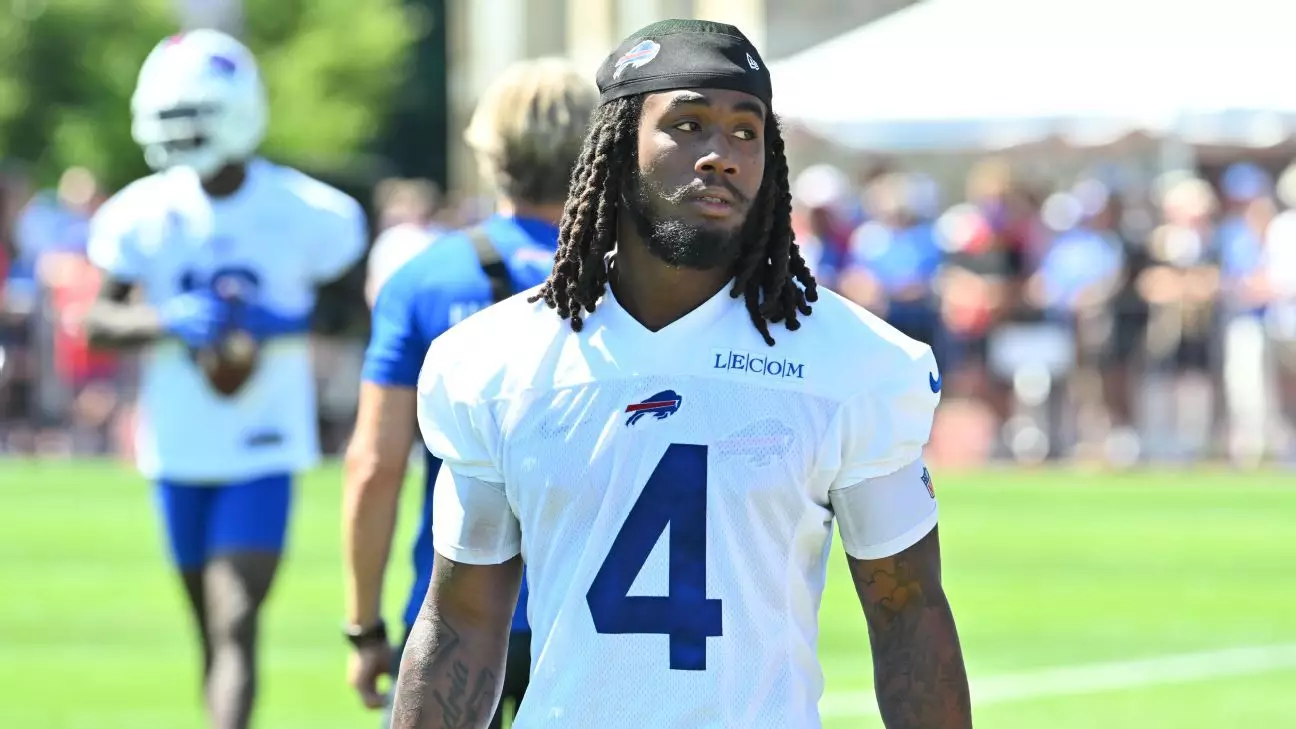James Cook approaches his current NFL situation with unwavering confidence, a trait that can inspire or alienate depending on perspective. The young running back’s public declaration of his worth and his determination to secure a lucrative contract demonstrate a strong belief in his abilities and value to the Buffalo Bills. This assertiveness, however, borders on boldness that risks backlash if negotiations stall or if his performance does not meet elevated expectations. Cook’s declaration that he “deserves” what he wants reveals both self-assurance and an unwillingness to dampen his pursuit of personal goals within a highly competitive league.
Yet, such confidence demands scrutiny. The NFL, with its salary cap and team-first philosophy, rarely bends to individual desires without strategic consideration. Cook’s confidence is based not just on past performance but also on bold social media stances, which, while rallying support or heightening leverage, can also be viewed as counterproductive if it alienates management or fans who prioritize team cohesion over individual ego. His firm stance signals a player eager to elevate himself, but it raises questions about whether he fully appreciates the delicate balance between self-advocacy and team harmony in professional sports.
Negotiation Dynamics and the Market Realities
The ongoing contract talks between Cook and the Bills exemplify the complex dance of negotiations that characterize NFL player-team contracts. While Cook’s management seeks a $15 million annual salary, a number that would position him among the league’s top-tier backs, the Bills’ front office must weigh that against the team’s salary cap constraints, positional value, and long-term roster strategy.
This tug-of-war reflects a broader trend: young players demanding recognition and respect commensurate with their burgeoning productivity, yet football’s financial ecosystem is less generous to running backs than other positions. The Bills’ general manager, Brandon Beane, underscores this reality, emphasizing the need for contracts to align with the team’s “overall plan and cap.” His words hint at a pragmatic approach—valuing Cook’s contributions, but within the constraints of team-building priorities. This cautious stance reveals a nuanced understanding that even standout players like Cook aren’t immune to the economic realities of the NFL.
Despite the apparent stalemate, Beane’s expressed hope that Cook remains with Buffalo next season underscores a willingness to negotiate in good faith. The transparency about previous missed opportunities and the acknowledgment of Cook’s talent suggest that patience and strategic planning are the team’s preferred paths forward. Nonetheless, this situation exposes the Achilles’ heel of NFL contracts: young players often face uncertainty despite shining on the field, highlighting how much power still resides with team executives.
Performance, Loyalty, and the Desire for Stability
Cook’s recent on-field performances bolster his case. His career rushing yards and record-tying touchdowns showcase a player peaking in his prime, eager to contribute more substantially, especially through the passing game and third-down versatility. His assertion that he “wants to get more involved” reflects a proactive athlete intent on proving his worth and expanding his role.
Interestingly, Cook’s expressed loyalty to the Bills—highlighting their draft history and his feelings about the franchise—serves as both a genuine sentiment and a strategic move to emphasize his commitment. Such statements can add pressure on management to reach a fair deal, knowing that losing a productive and popular player might be an unintended consequence of stagnation. However, the fact that Cook missed voluntary offseason workouts yet still participated fully in mandatory minicamp might raise doubts about his approach to professional discipline. Does this suggest a mature prioritization of motivation and focus, or could it hint at underlying tension with team protocol?
Finally, Cook’s willingness to stay motivated for the proper reasons—his love for the game, his respect for his teammates, and his aspirations for a successful career—depicts an athlete with the right mindset. But ultimately, the contract situation remains a defining factor for his future and legacy within the franchise. His rising profile and outspoken stance put him at the crossroads of future success—on the field and financially—and whether he can channel his confidence into securing a deal that genuinely reflects his value remains to be seen.


Leave a Reply